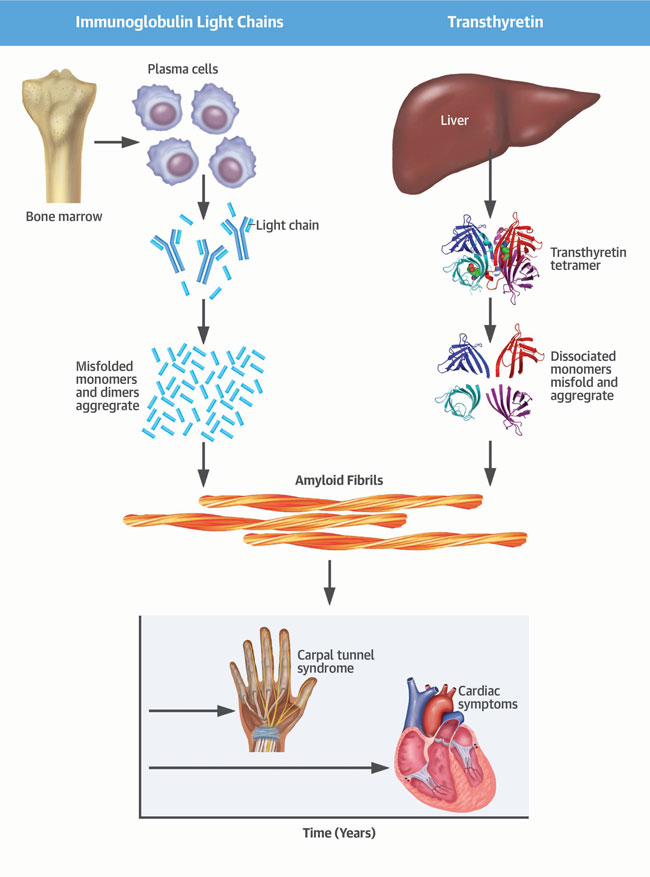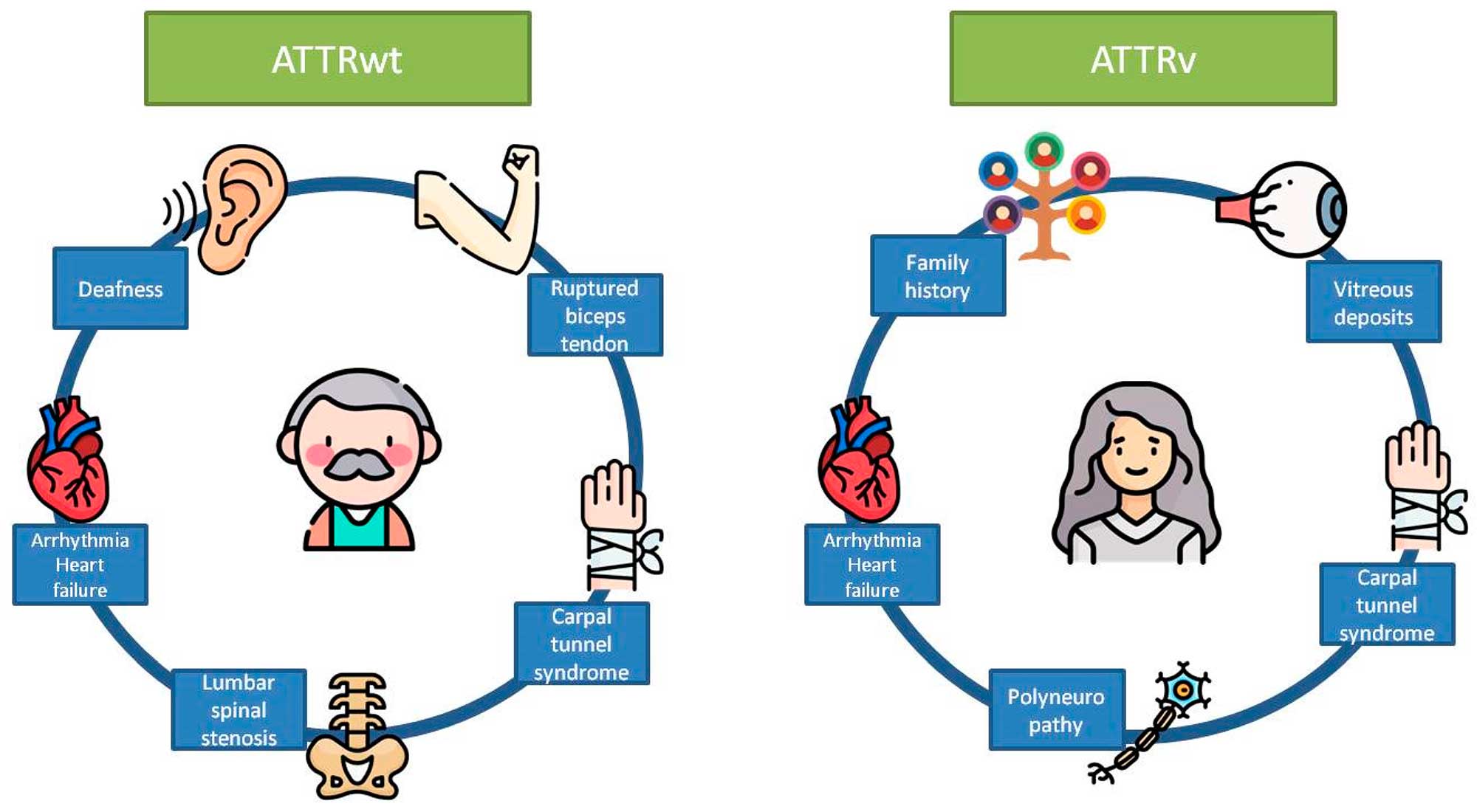Amyloidosis is a term that includes many different diseases. They all share one thing in common: abnormal protein from somewhere in the body forms deposits in the internal organs where it should not be. This can affect how the organs work and can cause symptoms. There are many proteins that can form this abnormal protein called amyloid, and each protein behaves differently when it forms these deposits. Out of all the types of amyloid protein, there are three that often affect the heart.
ABOUT AMYLOIDOSIS
What is amyloidosis?

What causes amyloidosis?
In AL amyloidosis, the abnormal protein is called a light chain. This protein is produced by abnormal white blood cells in the bone marrow. Normally, white blood cells in the bone marrow make antibodies to fight infections. Antibodies are made of ‘heavy chains’ and ‘light chains’. In AL amyloidosis, an abnormal white blood cell starts producing a lot of abnormal light chains and copies of itself. These abnormal light chains travel in the blood and build up in the heart and other organs.

ATTR amyloidosis
In ATTR amyloidosis, the abnormal protein is called transthyretin (TTR). It is a protein made in the liver and has a normal job of transporting thyroid hormone and vitamin A in the body. Sometimes, this protein can form amyloid deposits for one of two reasons.
Hereditary ATTR Amyloidosis
In hereditary ATTR amyloidosis, a changed (abnormal) version of the protein is inherited from one or both parents. This changed protein does not have the usual shape, so it easily forms amyloid deposits in the heart and nerves. Depending on the specific way its shape is changed, it can cause problems mostly in the heart, nerves, or both.
Wild-type ATTR Amyloidosis
In wild-type ATTR amyloidosis, the TTR protein gradually deposits in the heart over many years, and we don’t fully understand why this happens. This type of amyloidosis most often affects older men, but can also affect women.
What are the effects of amyloidosis on the heart?
Amyloid protein builds up in the heart, sticking between the heart muscle cells like glue. This makes the heart thicker and less flexible. Normally, when the heart beats, it relaxes to let blood flow in and then squeezes to pump blood to the rest of the body. But when the heart is stiff, it has trouble relaxing properly, which makes it harder for blood to fill. As a result, blood backs up into the lungs (causing shortness of breath), abdomen (leading to bloating, poor appetite, and nausea), and legs (causing swelling). Since the heart does not fill completely, there is less blood available to push forward when it contracts. This means less blood reaches the muscles (causing tiredness, shortness of breath), brain (resulting in dizziness, fainting, and tiredness), and internal organs (which may lead to kidney and other organ problems). Amyloid can also weaken the heart muscle, further reducing its ability to pump blood effectively. Lastly, amyloidosis increases the chances of having abnormal heart rhythms, such as atrial fibrillation.
Outside the heart, certain types of amyloidosis can affect the nerves that control heart rate and blood pressure. This can result in low blood pressure, especially when going from sitting or lying down to standing up. This may make some patients more likely to feeling dizzy or fainting.
Contact Us
Email: info@amyloidosis.com
Phone: 604 875-5759
Fax: 604 875-4265
St Paul Address:
5 C/D-5th Floor, Providence Building
1081 Burrard Street
Vancouver BC
V6Z 1Y6
VGH Address:
Gordon and Leslie Diamond Health Care Centre
2775 Laurel St., 9th Floor
Vancouver BC
V5Z 1M9

